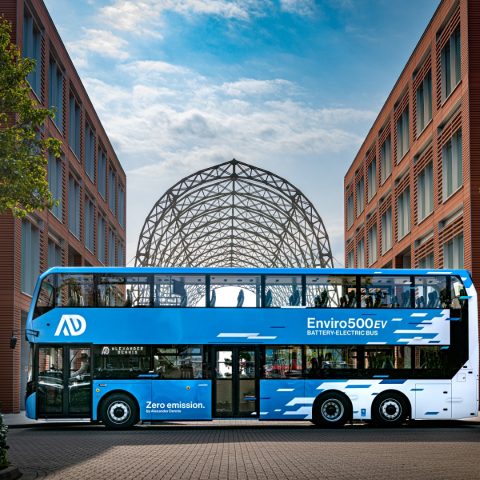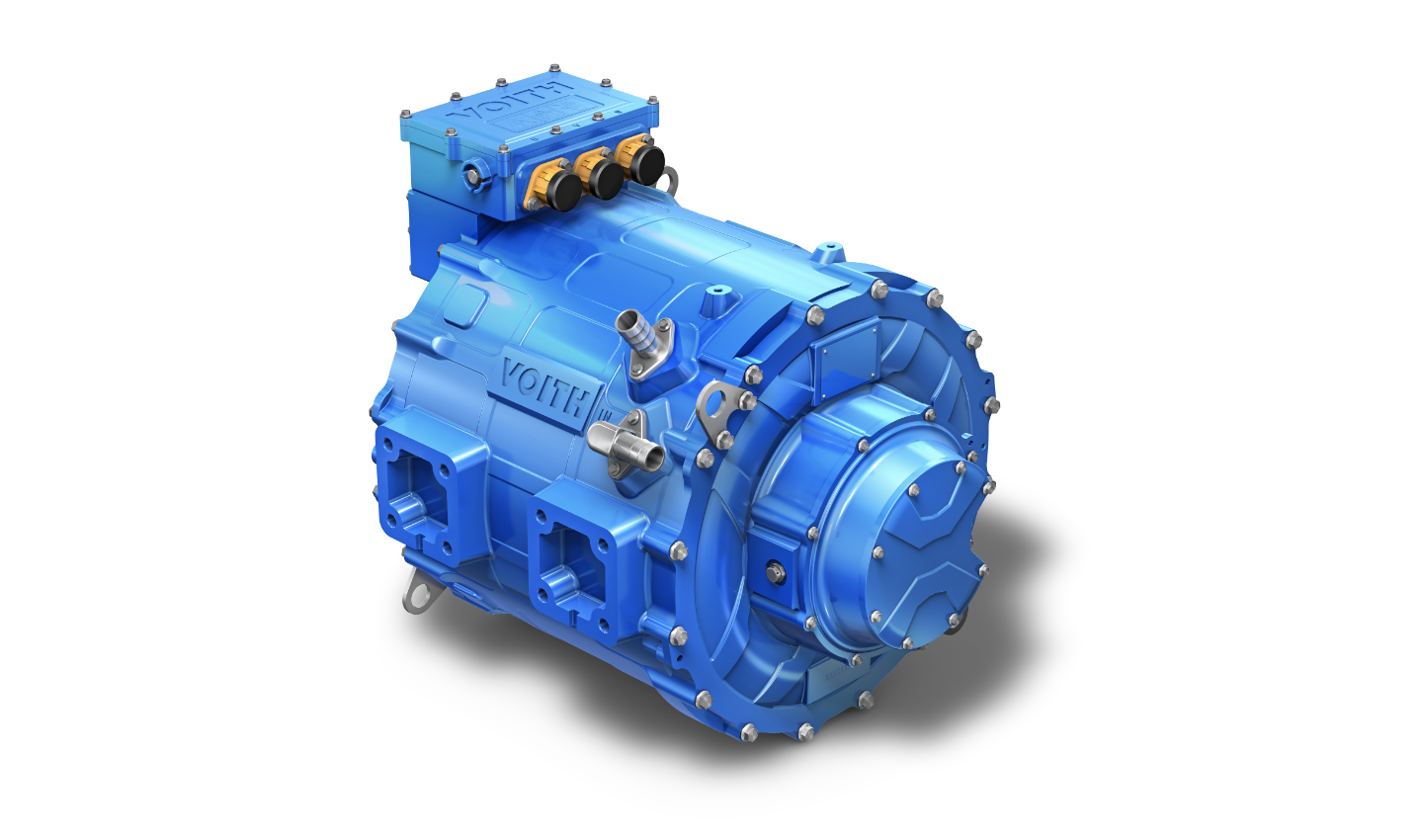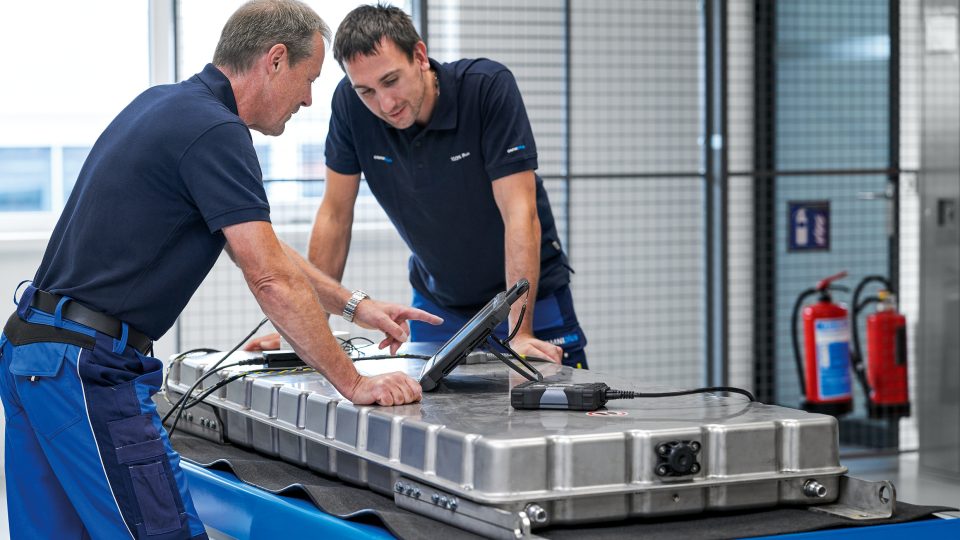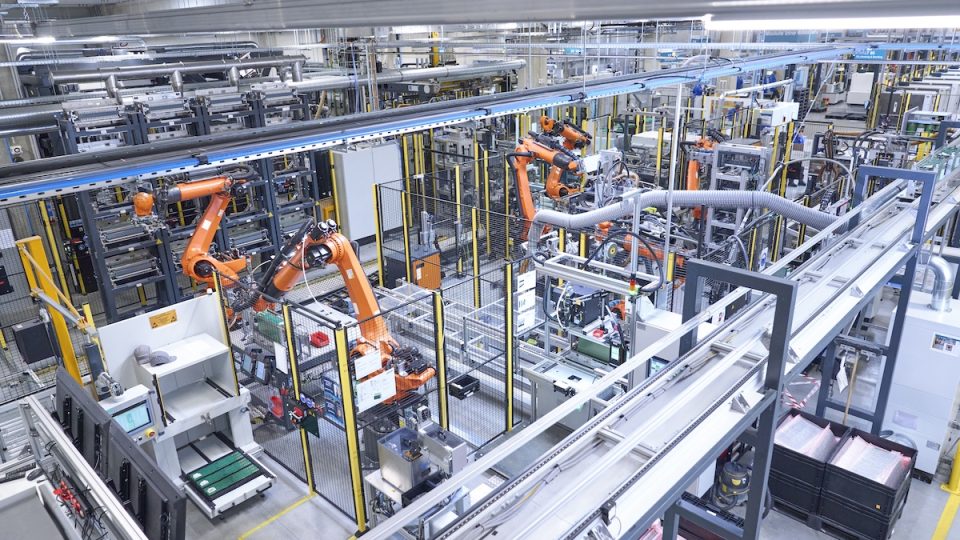1,000 e-buses in UK are powered with Voith powertrain VEDS
Voith electric powertrain VEDS has already been supplied to the UK bus market more than a thousand times. Over 1,200 buses registered in UK in 2023 were fitted with a purely electric drivetrain (BEV or FCEV). UK bus manufacturers Alexander Dennis and Wrightbus have so far adopted the VEDS (Voith Electrical Drive System). Voith drivetrain […]

Voith electric powertrain VEDS has already been supplied to the UK bus market more than a thousand times. Over 1,200 buses registered in UK in 2023 were fitted with a purely electric drivetrain (BEV or FCEV).
UK bus manufacturers Alexander Dennis and Wrightbus have so far adopted the VEDS (Voith Electrical Drive System).

Voith drivetrain for electric buses in UK
Voith technology “offers 20 percent greater efficiency than comparable products by competitors – the German group says -. This figure was determined by the non-profit Zemo Partnership following a certification process in which Zemo tested the two bus models GB Kite Electroliner and StreetDeck from Wrightbus. According to Robert Best, Director of Engineering at Wrightbus, the Northern Ireland-based bus manufacturer wants to equip more than 1,000 vehicles with the VEDS by 2025 alone”.
It is true to say that no other European country offers such a clear and reliable government funding framework for bus manufacturers and operators. This is part of the UK government’s ZEBRA (Zero Emission Bus Regional Areas) funding program. According to the latest reliable government figures, Voith states, total funding has amounted to around €2.34 billion since 2020. This already includes funding for the 2024/2025 financial years.
1,000 Voith VEDS system provided to buses in UK
“As of today, we have already supplied the UK with more than 1,000 VEDS drive systems for buses, a figure that is set to increase sharply” says Holger Seefelder, Vice President Sales EMEA Commercial Vehicles at Voith. He also highlights that within funding framework in UK “around 40 million pounds (approximately €47 million) has been provided specifically for rural communities. In the global metropolis of London and its commuter belt, the public transport network works extremely effectively. Via the ZEBRA 2 funding, the government is now focusing on rural regions”.
To bridge the gap between diesel and electric, Voith also offers the DIWA NXT transmission technology (with mild hybrid option chosen for instance by Iveco Bus), which is suitable for both diesel and gas-powered buses and enables fuel savings of 16 percent and correspondingly lower emissions. The zero-emission solution would be possible with a hydrogen combustion engine in combination with a DIWA NXT transmission. Other options are fuel cell or battery-electric vehicles where both variants are equipped with the VEDS drive system.







